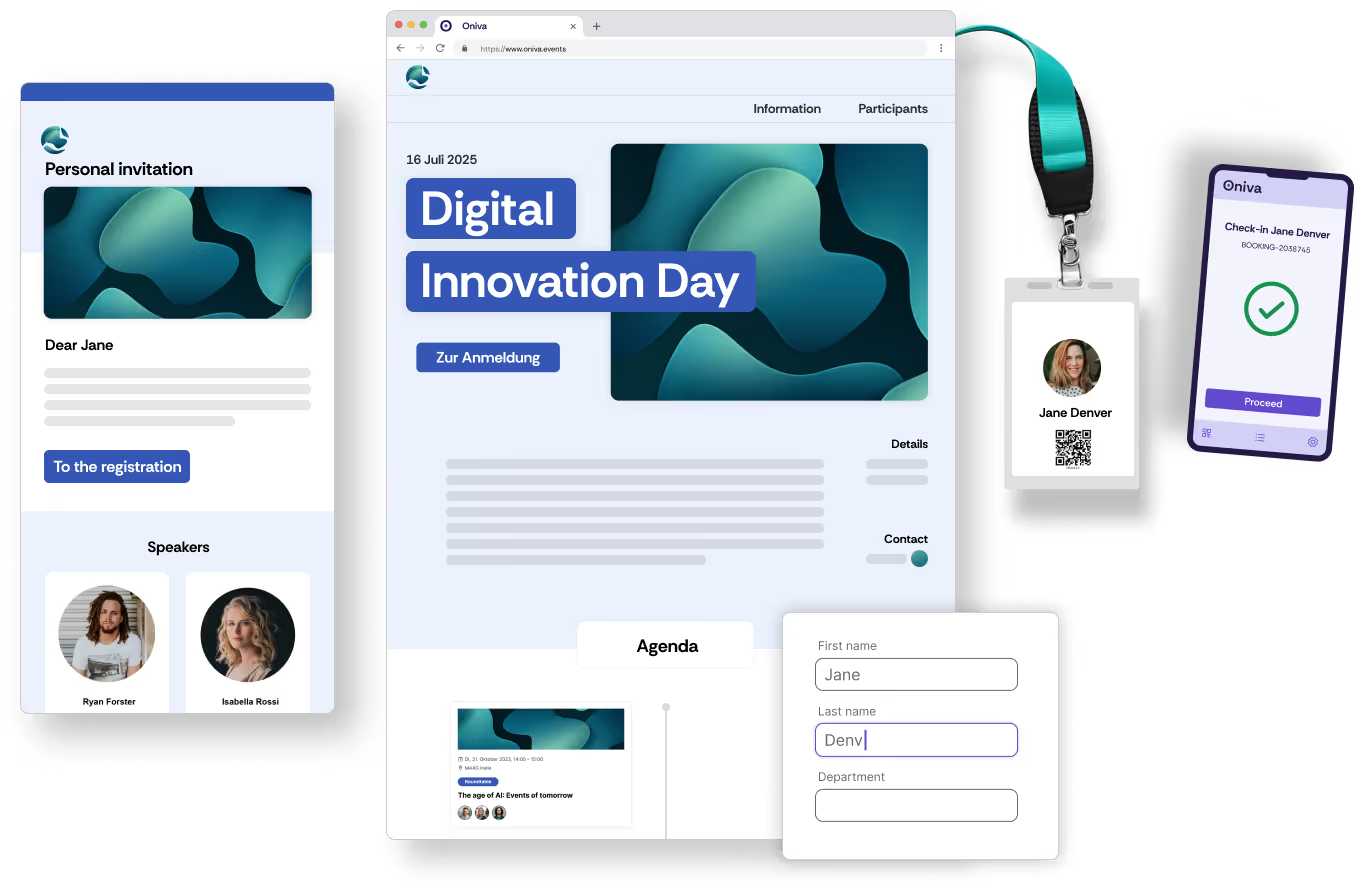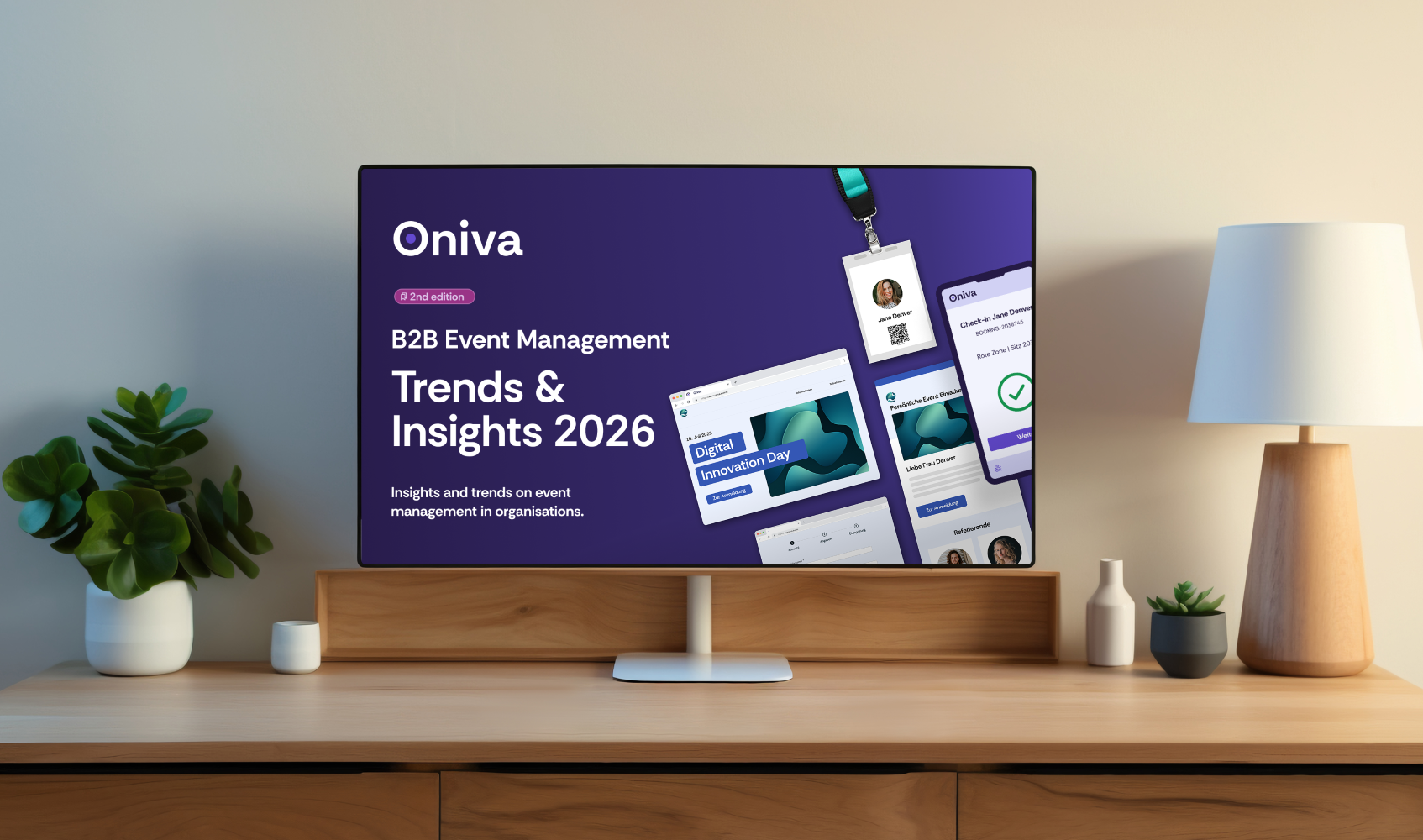Why are speakers so important for your event?
Speakers are to business events what DJs or bands are to festivals: they bring energy, create identification and attract people.
Content matters: Speakers deliver your event’s content with precision and translate complex knowledge into clear messages.
Audience magnet: Well-known speakers can significantly increase attendance – often they are the decisive factor in the RSVP.
Atmosphere & inspiration: A charismatic talk can build an emotional connection that lasts well beyond the event.
Knowledge transfer: Speakers make content tangible, provide impulses for practice and spark discussion.
What should you look for when choosing speakers?
Not every expert is automatically a good stage personality. The right mix of expertise, presence and relevance is needed.
Criteria for the right choice
Expertise: Does the content match the event theme?
Presentation skills: Can the person speak clearly, engagingly and in a way that fits the audience?
Audience fit: Does the person speak the language of your guests?
Authenticity: Do they come across as credible and approachable without artificial effects?
Familiarity: Does a prominent name increase the appeal of the event?
Costs: Does the fee fit into the budget?
💡 Practical tip: Watch video clips or past appearances to get a realistic impression of style and stage presence.
Internal vs external speakers – what suits your event?
Internal speakers
Bring closeness to the company and practical knowledge. They are ideal for internal events, project updates or cultural topics. But beware: not every executive is a strong stage personality. An interview or talk format can help ease nervousness.
External speakers
Bring fresh impulses, credibility and inspiration. At conferences, they are often the “headliners” and play a major role in ticket sales. A big name generates attention but should still be relevant to the event’s content.
Where can you find the right speakers?
Finding the right personalities can be time-consuming. Beyond your personal network and LinkedIn, specialised agencies in the DACH region offer a wide selection of business speakers:
Speakers Excellence (Germany)
Premium Speakers (Switzerland)
5 Sterne Redner (Germany)
Online Redner (DACH-wide)
CSA Speakers (DACH-wide)
Speakers.ch (Switzerland)
💡 Tip: Good agencies actively advise you and also suggest lesser-known but fitting speakers.
What costs should you expect?
Fees for speakers vary greatly – depending on their level of fame, experience, duration of the appearance and exclusivity.
Young professionals / subject-matter experts: approx. €1,000 – €3,000
Experienced speakers with industry profile: approx. €3,000 – €7,000
Familiar names / bestselling authors: €7,000 – €15,000
High-profile personalities / top keynote speakers: from €15,000 up to €50,000+
Additional costs may include travel, accommodation and possibly technical equipment. For international figures, contracts often specify first-class flights or VIP treatment.
💡 Budget hack: Consider whether a speaker can cover multiple formats – for example, a keynote, a panel and a workshop. This increases value per fee.
Speaker briefing – how to ensure smooth collaboration
Even the best speakers need a good briefing. This ensures their content matches the storyline and dramaturgy of your event – and prevents unpleasant surprises.
Contents of a speaker briefing
Objective & context: Why is the event happening, what should it achieve?
Audience profile: Who is in the room? What are their expectations and prior knowledge?
Event storyline: What overarching theme or motto connects all sessions?
Content framework: Are there key topics, must-haves or no-gos?
Technical framework: Slot length, format (keynote, Q&A, panel), media usage.
Organisational points: Contact person, arrival, schedule, tech rehearsal, accommodation.
💡 Extra tip: Send a written briefing at least 2–3 weeks before the event and hold an alignment call. This prevents misunderstandings.
Topics that are often overlooked
Here are some aspects that matter in practice and are worth considering:
Diversity on stage: Ensure a range of perspectives (gender, age, background). A diverse line-up feels more modern and authentic.
Sustainability: Does someone really need to fly in from overseas for a 30-minute talk? Virtual keynotes are now technically mature and resource-friendly.
Long-term collaboration: Instead of booking new faces for every event, consider building a “speaker pool”. Familiar faces create trust and continuity.
Combination with interactive formats: Speakers don’t have to monologue. Discussion rounds, fishbowls or AMA (“Ask me anything”) sessions can make talks more dynamic.
Conclusion
Speakers are the heart of many events – they inspire, share knowledge and shape how your event is perceived. By taking time for careful selection, planning costs realistically and providing a professional briefing, you ensure the stage becomes a highlight.
And remember: speakers are more than programme items. They are partners in your event story – and can turn a gathering into an experience that will be remembered long after.



















.svg)









